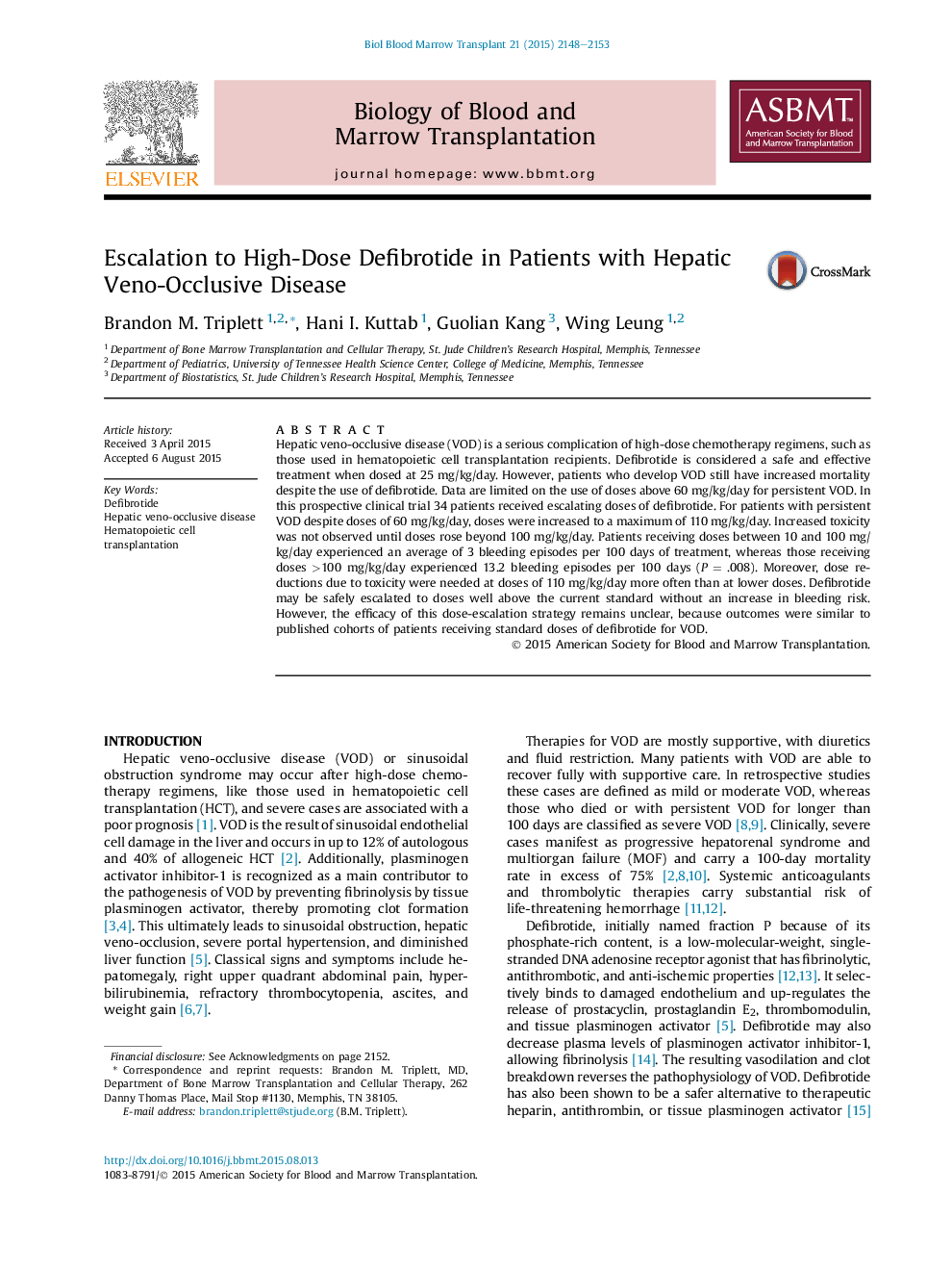| Article ID | Journal | Published Year | Pages | File Type |
|---|---|---|---|---|
| 2101384 | Biology of Blood and Marrow Transplantation | 2015 | 6 Pages |
•Patients with persistent VOD received dose escalation of defibrotide.•Defibrotide doses well above the current standard did not increase bleeding.•Doses >100 mg/kg/day, however, were associated with increased toxicity.•Improved efficacy was not evident with defibrotide dose escalation.
Hepatic veno-occlusive disease (VOD) is a serious complication of high-dose chemotherapy regimens, such as those used in hematopoietic cell transplantation recipients. Defibrotide is considered a safe and effective treatment when dosed at 25 mg/kg/day. However, patients who develop VOD still have increased mortality despite the use of defibrotide. Data are limited on the use of doses above 60 mg/kg/day for persistent VOD. In this prospective clinical trial 34 patients received escalating doses of defibrotide. For patients with persistent VOD despite doses of 60 mg/kg/day, doses were increased to a maximum of 110 mg/kg/day. Increased toxicity was not observed until doses rose beyond 100 mg/kg/day. Patients receiving doses between 10 and 100 mg/kg/day experienced an average of 3 bleeding episodes per 100 days of treatment, whereas those receiving doses >100 mg/kg/day experienced 13.2 bleeding episodes per 100 days (P = .008). Moreover, dose reductions due to toxicity were needed at doses of 110 mg/kg/day more often than at lower doses. Defibrotide may be safely escalated to doses well above the current standard without an increase in bleeding risk. However, the efficacy of this dose-escalation strategy remains unclear, because outcomes were similar to published cohorts of patients receiving standard doses of defibrotide for VOD.
